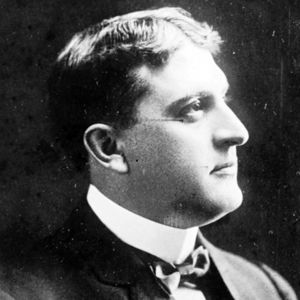Difference between revisions of "Frederick Heinze"
(death note) |
(image) |
||
| Line 6: | Line 6: | ||
|description=A copper baron bankrupted by the money trust | |description=A copper baron bankrupted by the money trust | ||
|victim_of=1907 panic | |victim_of=1907 panic | ||
| + | |image=Frederick Heinze.jpg | ||
|spouses=Bernice Henderson | |spouses=Bernice Henderson | ||
|alma_mater=Brooklyn Polytechnic Institute, Columbia University School of Mines | |alma_mater=Brooklyn Polytechnic Institute, Columbia University School of Mines | ||
Latest revision as of 02:32, 19 October 2018
(businessman) | |
|---|---|
 | |
| Born | December 5, 1869 Brooklyn, New York |
| Died | November 4, 1914 (Age 44) Saratoga, New York |
| Alma mater | Brooklyn Polytechnic Institute, Columbia University School of Mines |
| Parents | Otto Heinze Lida Lacey |
| Children | Fritz Heinze Jr |
| Spouse | Bernice Henderson |
| Victim of | Premature death |
A copper baron bankrupted by the money trust | |
Frederick Augustus Heinze Sr. was a Montana copper millionaire who was selected as the key target for the money trust's 1907 panic.
Activities
“Heinze brought his copper fortune to New York and joined with C. W. Morse of the Ice Trust. Jointly they acquired control of Mercantile National Bank, using the assets of the Bank of North America already dominated by Morse. Heinze and Morse then acquired control of the Knickerbocker Trust Company, allied with the Trust Company of America and Lincoln Trust. They then incorporated a speculative vehicle, the United Copper Company. It was stock market games with United Copper that precipitated the 1907 crisis. Banks under control of the "money trust" called their loans to United Copper and began a run on the Heinze-Morse Mercantile National Bank. It is now generally agreed "that the 1907 panic was precipitated by the struggle to get rid of Heinze."”
Anthony Sutton [1]
Death
In 1914, Heine was "suddenly stricken" at aged 44, reported the New York Times.[2]